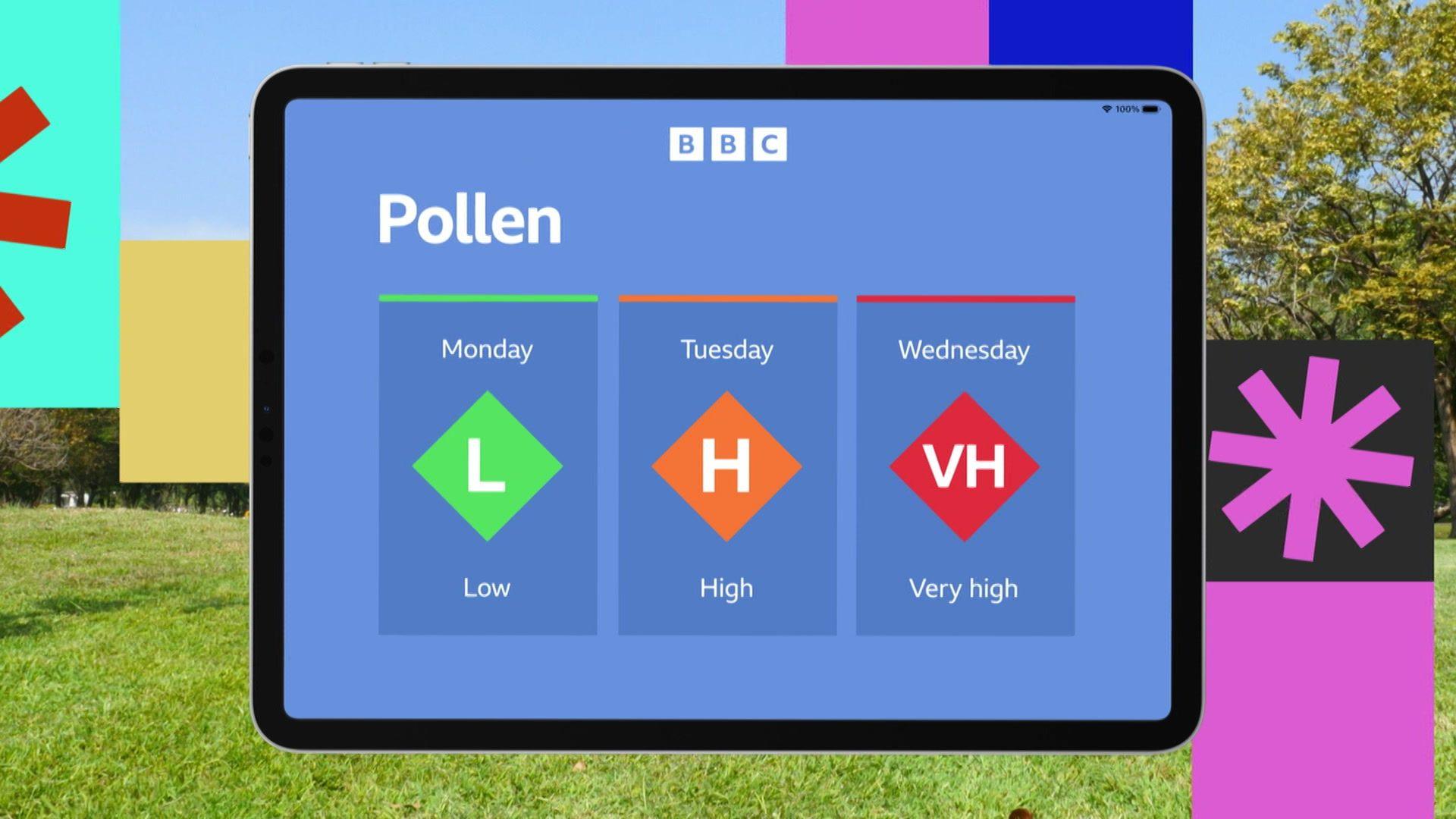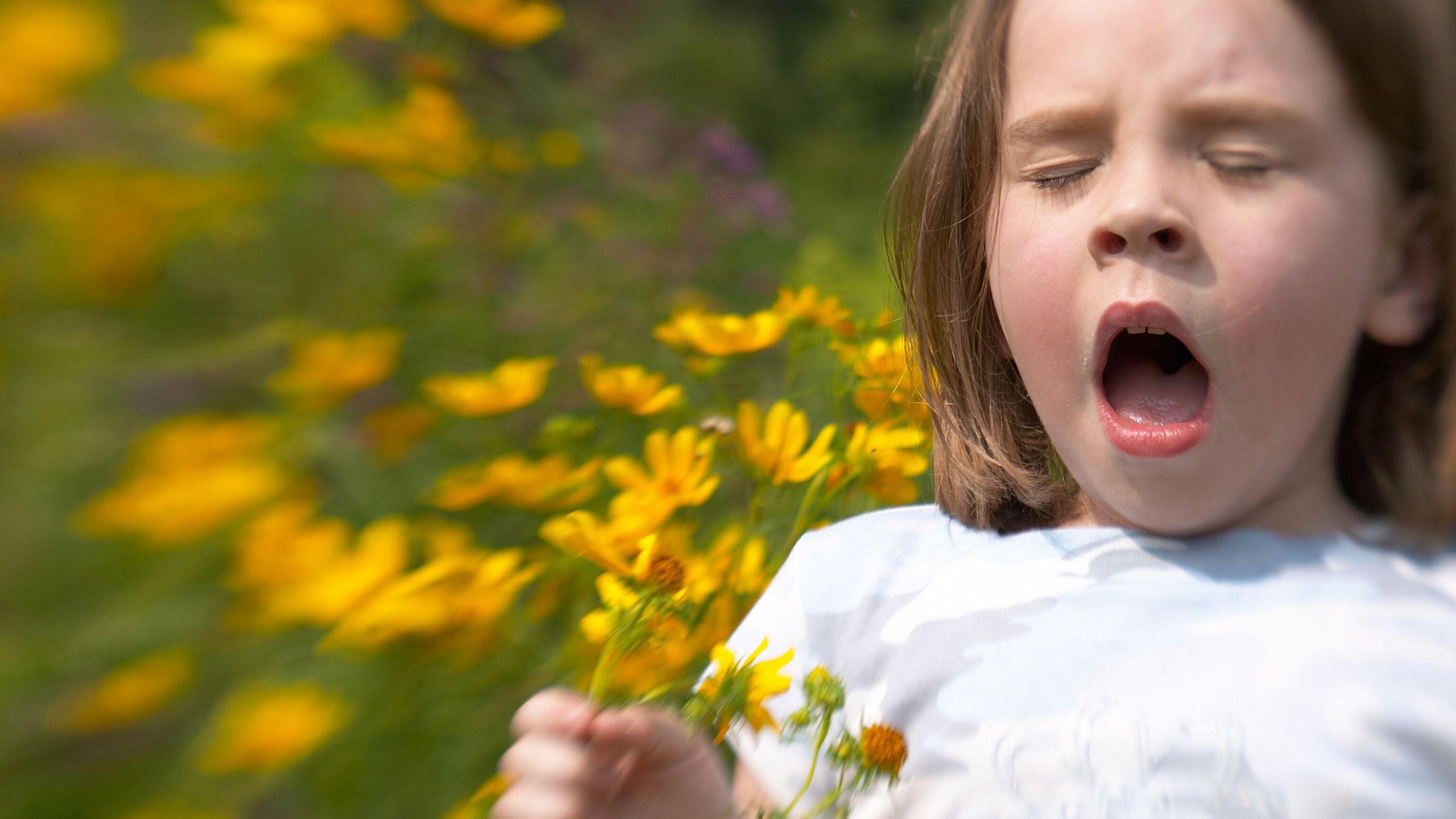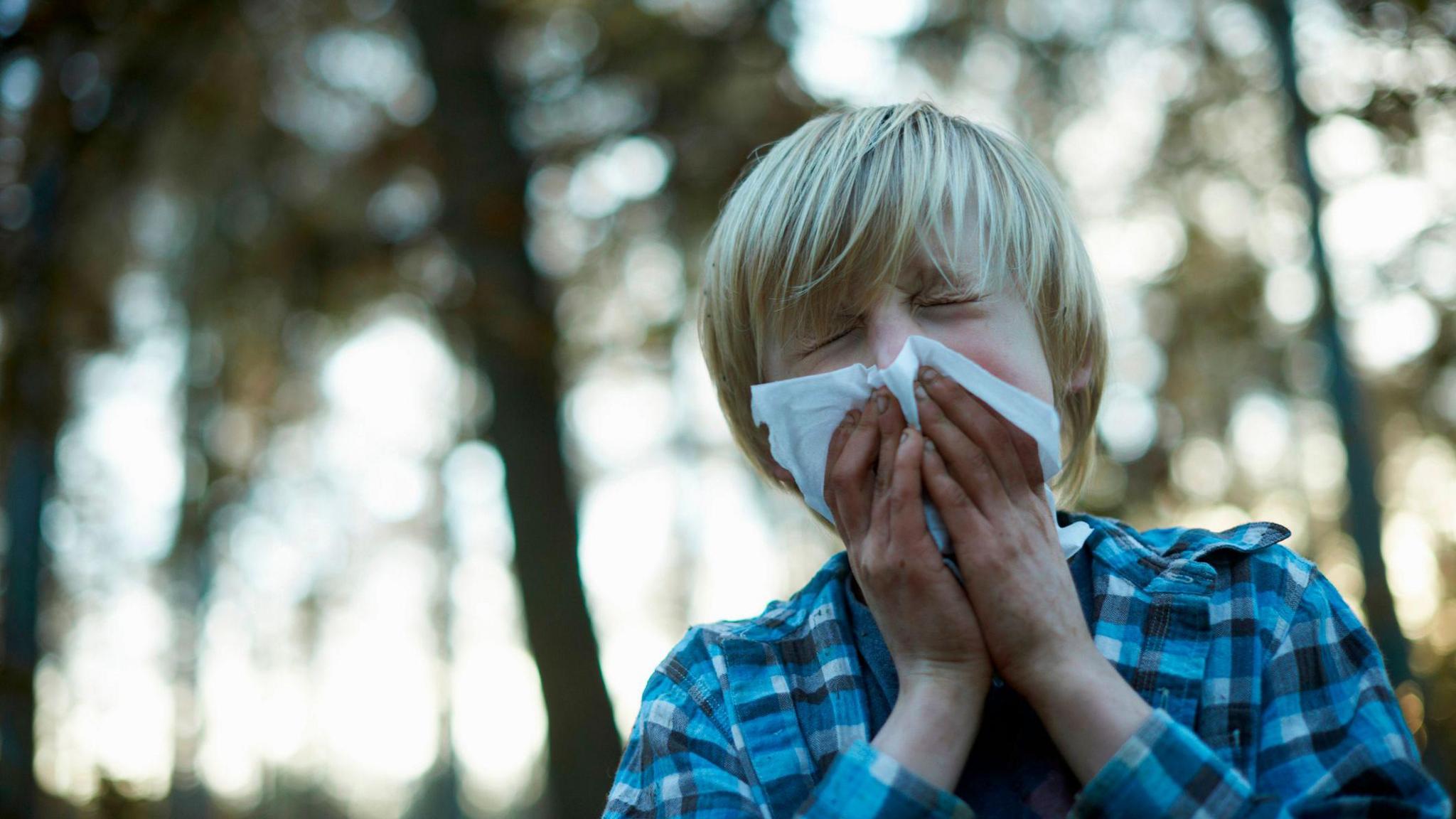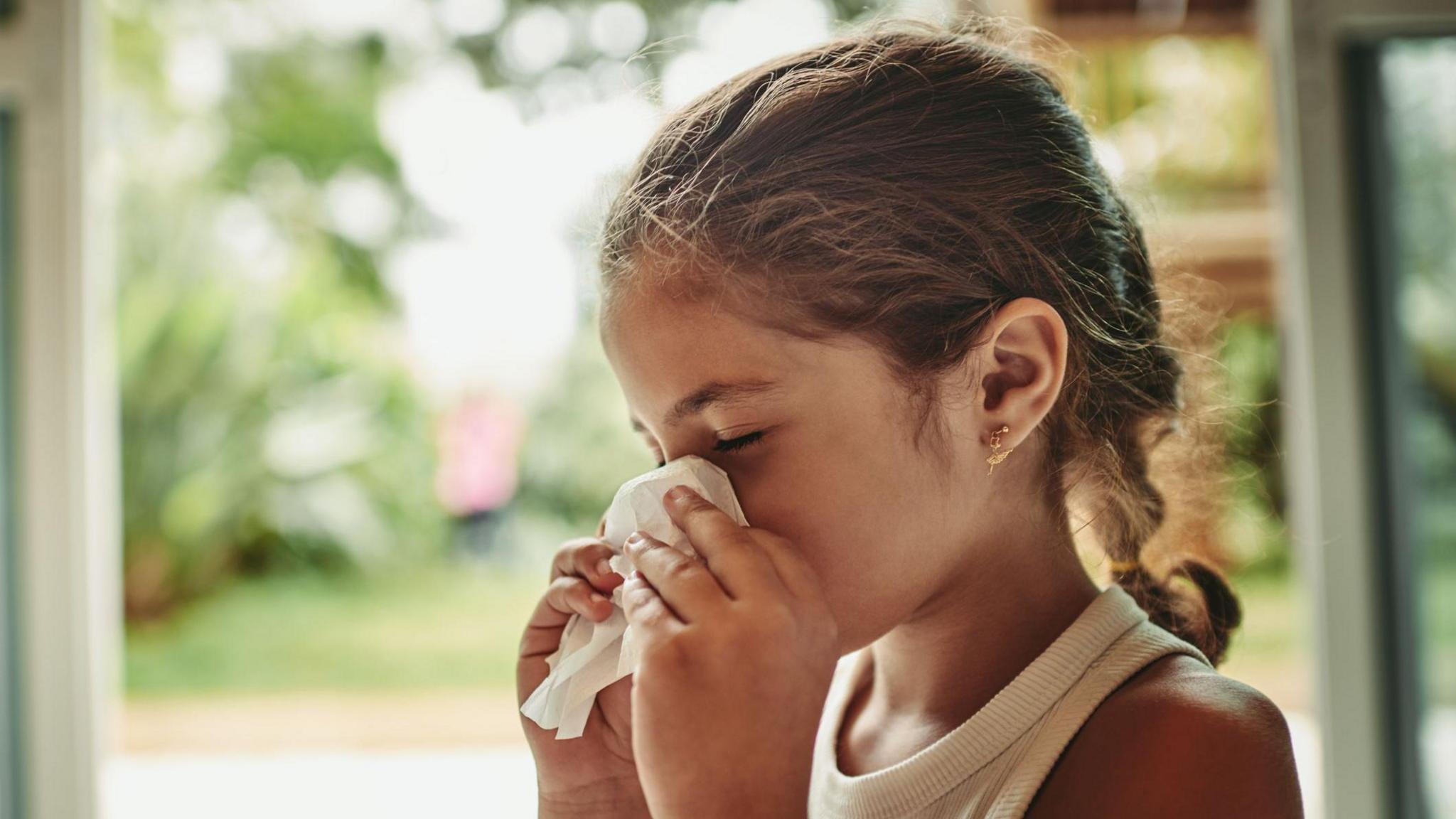Hay fever 2025: What is it and how can you treat the symptoms?
What is hayfever?
- Published
The official start of summer is just around the corner. The weather is feeling warmer and lots of plants are in bloom. This also means that there is more pollen in the air.
With pollen comes hay fever, an allergic reaction to pollen, which can mean a runny nose and itchy eyes for many people.
According to the Met Office, the UK's national weather service, pollen levels will be high in many areas of the UK over the next five days, with differences depending on where you live.
But what exactly is hay fever and what are the ways we can improve symptoms? Read on to find out.
How to be a good friend to someone with an allergy
- Published28 March 2019
Why 2025 could be a sneezy summer for hay fever sufferers
- Published30 April
How does weather affect pollen and hay fever? Video, 00:01:20
- Published10 June 2022
What is the pollen count?

Weather apps can tell you what the pollen levels are going to be
People with hay fever can check how high the levels of pollen in the air are by watching special weather reports.
As well as telling you about the weather, presenters can also give a pollen count, to warn people when the levels are high.
The Met Office record the pollen count for five days ahead across the whole of the UK.
Over the next five days they have predicted that in some areas the pollen will be high, and in some it could be very high. However, this does vary depending on where you live, so it is important to check the information for your local area.
How does weather affect pollen and hay fever?
What is hay fever?

Hay fever is an allergy to pollen
Hay fever is an allergy. People who have it are allergic to pollen.
Pollen is a type of fine powder which is released by lots of different plants and trees.
There are three different types of pollen - tree pollen, grass pollen and weed pollen.
There are lots of proteins in pollen which can cause your nose, eyes and throat to become swollen or irritated if you are allergic to it.
If you have hay fever you might suffer from an itchy throat, itchy eyes, a runny nose, or sneezing. All of these are signs of your body is trying to protect itself by getting rid of the pollen.
Who is likely to get hay fever?

Hay fever is one of the most common allergies in the UK
Hay fever is one of the most common allergies in the UK, affecting about 13 million people.
You can get it at any age, although it usually starts when you are young.
Not everyone has hay fever, but it is more common in people whose family members already have it or if you have asthma.
Hay fever is also more common in people with other allergies.
People can be affected by different types of pollen as well.
For example, there is a lot of tree pollen in the spring, grass pollen in the summer and weed pollen in the autumn.
Tips for dealing with hay fever symptoms

What can you do to help hay fever?
Although there is no cure for hay fever, people who have it can manage the symptoms in many different ways.
Top tips include:
Wearing sunglasses to help stop as much pollen getting into your eyes.
Avoiding freshly cut grass.
Changing clothes if you have been outside.
Not spending too long outside in the early evening when the pollen count can be higher.
Closing windows at night-time.
